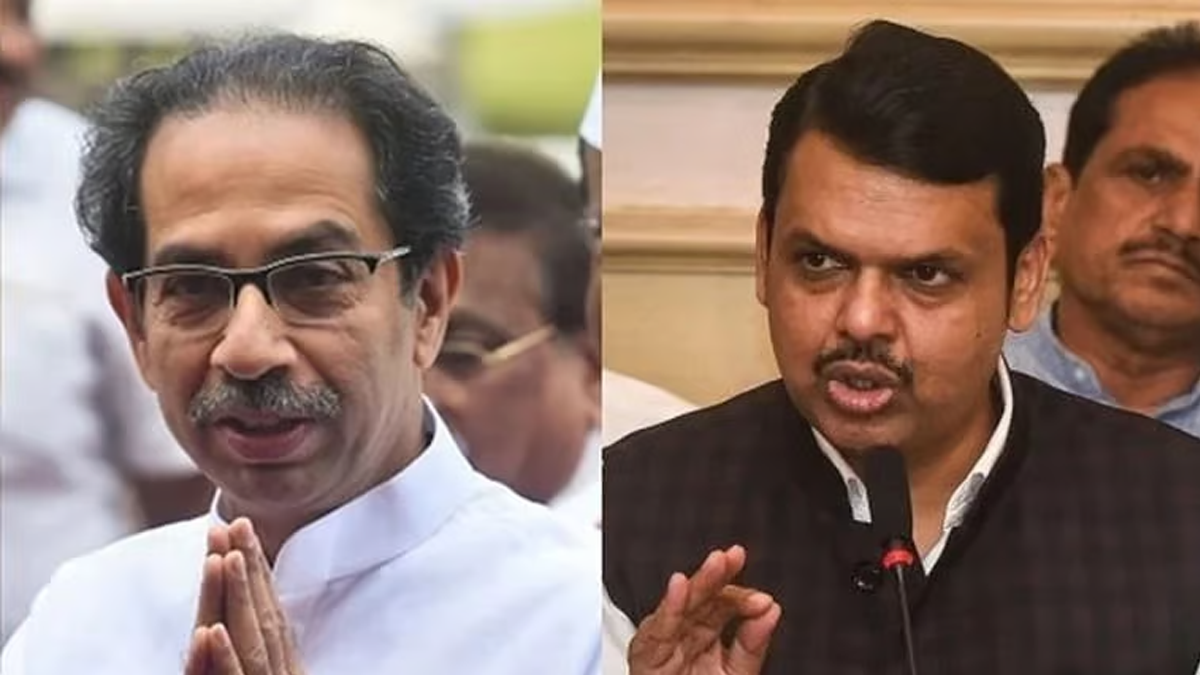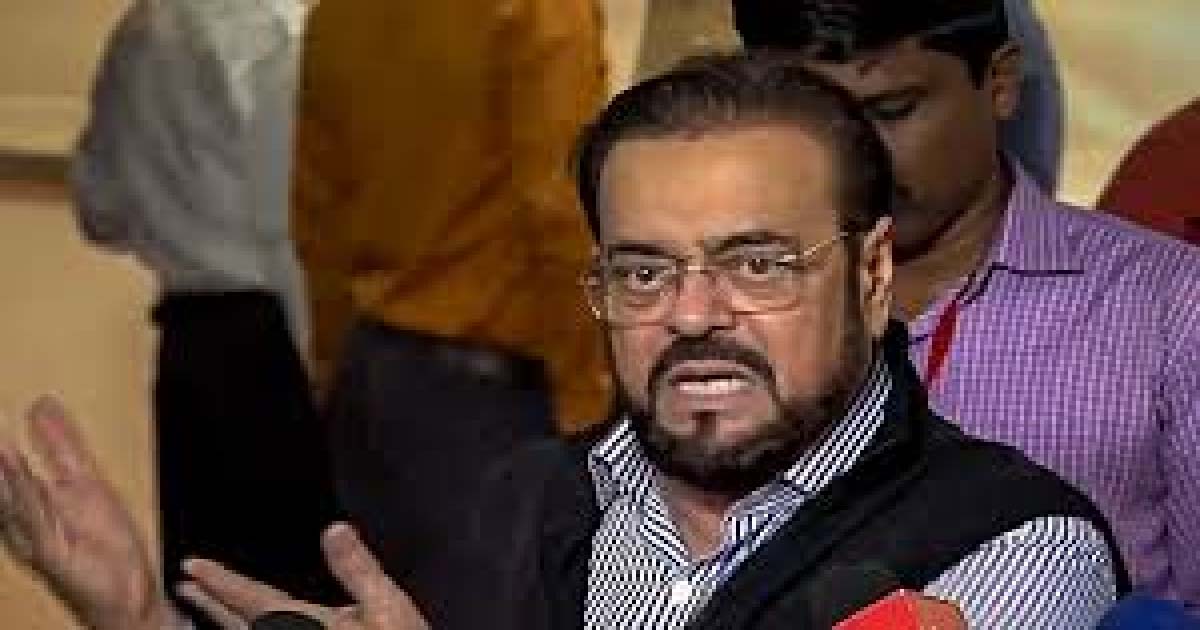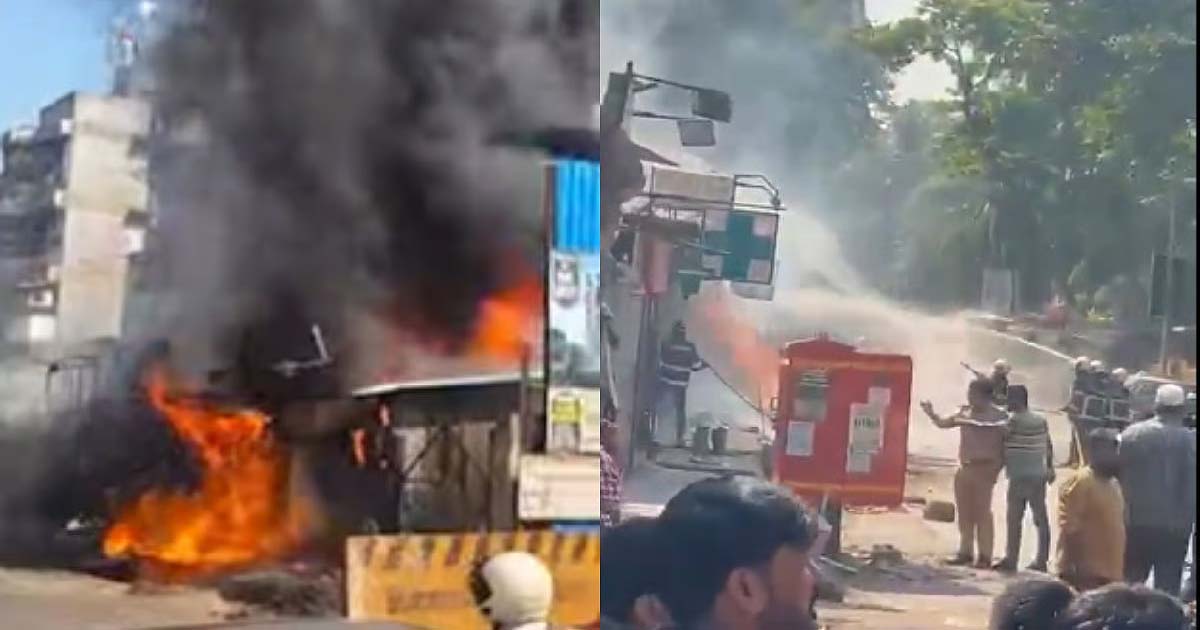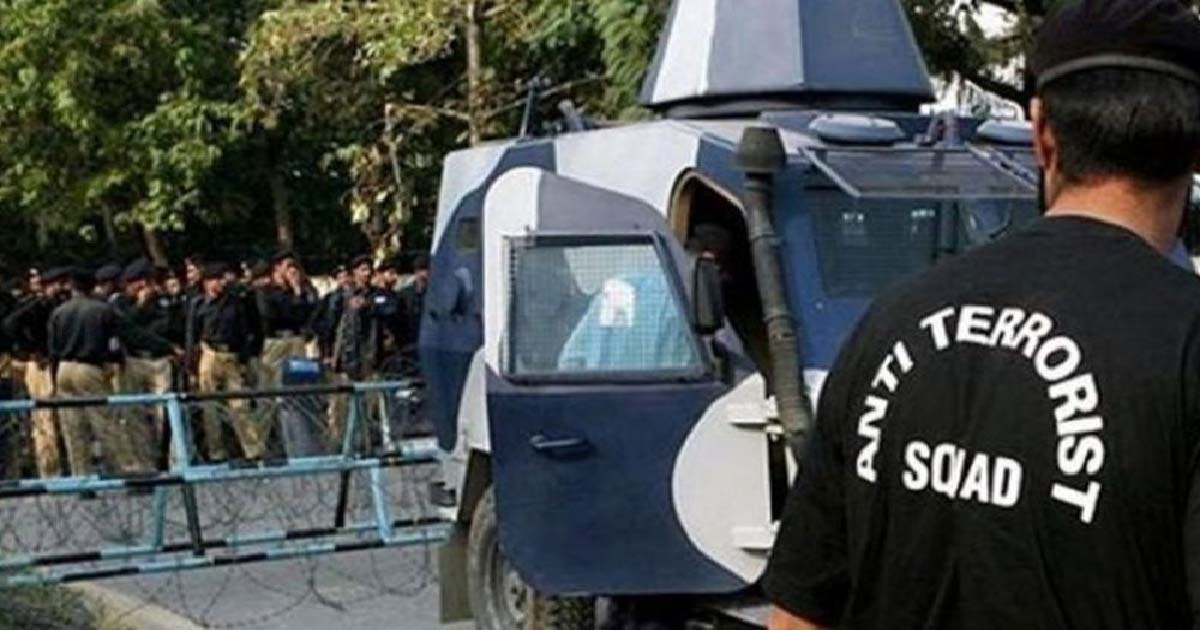Maharashtra
‘Either You Will Remain Or I Will’: Uddhav Thackeray Warns Devendra Fadnavis Ahead Of Upcoming Assembly Polls

Shiv Sena (UBT) supremo, Uddhav Thackeray, while speaking at the Rangsharda Auditorium in Mumbai on Wednesday warned Maharashtra Deputy CM Devendra Fadnavis by saying, “Either you will remain, or I will.”
Thackeray’s statement comes days after NCP (SP) leader Anil Deshmukh allegedly informed him that Fadnavis was trying to put him and his son Aaditya Thackeray behind bars.
During the event, Thackeray indicated that the conflict between Sena (UBT) and the BJP will intensify in the coming days in the run-up to the Assembly elections.
He said that many prominent leaders have visited him recently and supported him for “showing the country the right path.”
Thackeray further launched a scathing attack on the BJP and called them a group of thieves.
“We fought the Lok Sabha elections in such a way that even PM Modi broke out in a sweat. Now I feel pity when listening to his speeches. I never became a municipal councillor; I directly became the Chief Minister. I did everything possible. This is the last challenge for us; after this, no one will challenge us. They broke our party and family. Now they are standing to challenge us. Shiv Sena is not a rusty sword but a shining one. We had to fight to preserve Mumbai. We are being treated this way in our rightful Mumbai. Two businessmen are doing all this. We need to uproot their mentality entirely,” said Thackeray.
“Even now, anyone who wants to leave is welcome to go; former councillors can leave if they wish. I will fight with my Shiv Sainiks. I have descended with the determination that either you will remain or I will. It is said in the Gita that when Arjuna saw that all his relatives were in front of him, it was natural to feel pain. Wouldn’t I feel it too? People who were with me until yesterday are now coming to attack my house. Anil Deshmukh told me about how Fadnavis schemed to imprison me and Aaditya. I have stood firm, enduring all this. Either you will remain, or I will. I still do not have an official party, symbol, or money. But I am challenging everyone solely on your strength,” the former CM added further.
“In the Lok Sabha elections, these thieves used Balasaheb’s photo and called for votes for the Bow and Arrow symbol. So there is still confusion among the people,” said Thackeray.
In response to Thackeray’s scathing attack, BJP leader Sudhir Mungantiwar said, “…Balasaheb Thackeray could never align with Congress or NCP. He had said that the day he had to go with Congress, he would shut his shop. But unfortunately, Uddhav Thackeray has taken the position that Karna took of siding with Duryodhana and the Kauravas in this battle of democracy.”
Maharashtra
Samajwadi Party will contest Mumbai BMC elections alone Abu Asim Azmi

Mumbai: The Samajwadi Party will contest the Mumbai Municipal Corporation elections with full vigor, this was claimed by Maharashtra Samajwadi Party leader and worker assemblyman Abu Asim Azmi in a press conference held at Islam Gymkhana here today. He said that the situation in Govindi is very bad, there is a shortage of funds here and difficulties have arisen in providing funds. If any funds are sought, the excuse is given that the funds have been spent on the Ladli Behan Yojana and the funds are not available. He said that the Samajwadi Party is also participating in the Zilla Parishad and Gram Panchayat elections in Maharashtra. Along with this, Abu Asim Azmi has also announced to contest the elections alone on about 150 seats in the BMC elections.
Abu Asim Azmi said that from November 20, the Samajwadi Party will distribute AB forms to its candidates and this process will continue till December 5. The Samajwadi Party will field its candidates in the constituencies where its candidates will be able to participate in the elections with strength. He said that the way the Samajwadi Party had made an agreement with the Congress and Maha Vikas Aghadi last time, but it has been betrayed, he said that the Samajwadi Party was not provided a seat until the date of filling the form in the assembly elections ended and then two seats were given and no discussion was even held with us regarding this. The Samajwadi Party is free to take decisions for the elections in Maharashtra. National President Akhilesh Yadav has given full responsibility for this. He has made it clear that he is free to compromise with secular parties in Maharashtra to keep communal forces away from power. However, despite this, the attitude of a big party like Congress towards its allies is not appropriate and compromises are broken in the very elections. Therefore, the Samajwadi Party has now decided to contest the BMC elections alone. He said that in Maharashtra, a Samajwadi Party candidate is also in the fray in the Gram Panchayat Zilla Parishad elections, along with this, the Samajwadi Party will contest the elections on development works. He said that Deputy Chief Minister Ajit Pawar had visited Govindi once and expressed concern about the plight of the streets here. After that, we demanded funds from Ajit Pawar and he promised to provide more funds, but when we talked to him, he said that the funds have been spent on the Ladli Behan Yojana. He said that elections have not been held for four years, so the condition of other districts including the corporation is very bad. He alleged that funds are not being provided to former members of our party, but if someone joins the Ajit Pawar group or Shinde Sena, it does not matter whether he was a corporator or not, funds are provided to him immediately. In such a situation, this discrimination should end and all former corporators should be provided funds because they understand the problems of their areas.
He said that the lives of the people have become unbearable due to the SMS company in Govindi Shivaji Nagar. The High Court has given more time to the company, due to which there is disappointment among the people. The issue will be approached in the Supreme Court. Abu Asim Azmi has once again strongly demanded from the government to close the SMS company and has also assured to take all necessary steps for this and has requested the people to strengthen the Samajwadi Party. Samajwadi Party leader Advocate Yousuf Abrahani, MLA Raees Sheikh, and other leaders were present in this press conference.
Maharashtra
Mumbai: Massive Fire Breaks Out At Kurla’s LIG Colony Due To Gas Pipeline Burst

Mumbai: A massive fire broke out on November 19 in Kurla West near the Mubarak Complex at LIG Colony, reportedly triggered by a gas pipeline burst. Videos circulating on social media captured thick black smoke coming into the air as flames spread rapidly.
According to the visuals, the blaze was seen in the shop located on the ground floor of a residential building and firefighting officials were present at the spot trying to douse the fire. Several residential buildings are seen in the lane where the fire took place, bringing in security concern for residents.
Maharashtra
Pune Zubair Hangekar’s Pakistan connection, hope for new conclusions in the investigation… ATS releases him after questioning 19 people so far

Mumbai: Pune Suspected terrorist Zubair Hungakar’s contact list has Pakistani numbers. Zubair Hungakar’s mobile contact list has 5 international numbers. Numbers of Gulf countries were found in Hungakar’s old and used handset. The old handset has 1 number for Pakistan, 2 for Saudi Arabia, 1 number for Oman and 1 number for Kuwait. It has been found that 1 Omani and 4 Saudi Arabian numbers are stored in the mobile phone used.
When asked about this number, Zubair said in response to a question during interrogation that he did not know. Suspected Al-Qaeda member Zubair Hungakar has been sent to judicial custody. Zubair Ilyas Hungakar was arrested on charges of spreading jihad in support of the terrorist organization Al-Qaeda in the Indian subcontinent and threatening the unity and security of the country.
Zubair is originally from Solapur and currently works in a software company in Kalyani Nagar. He is married and has two children, and his family resides in the Kondwa area. Meanwhile, the ATS is thoroughly investigating the matter and is investigating whether Zubair had any links with Al-Qaeda members, why he had these materials and for what purpose. The police will also question his friend and examine his mobile and other electronic devices. It is also being investigated whether he was in contact with any other terrorist organisation. All these international numbers are important to Zubair and it is being speculated that he has terrorist connections and links. However, when questioned about these numbers, he gave vague answers that he did not know who they belonged to or what they were related to.
ATS officials said that investigations are being conducted to find out whether Zubair had any links with Al-Qaeda members and what was the purpose of this contact. We are also investigating why and for what purpose he had the Al-Qaeda material. His friend in his custody will be questioned and his mobile and other electronic devices will also be examined. It is also being investigated whether he came in contact with any other terrorist or not. Meanwhile, the ATS had earlier this month conducted search operations in different parts of the city. The operation was related to the investigation of an old ISIS module. At that time, suspected radical individuals were kept under surveillance. During this operation, 19 people were detained for questioning, but they were released after questioning. During these raids, the police have also seized some important documents along with electronic devices.
-

 Crime3 years ago
Crime3 years agoClass 10 student jumps to death in Jaipur
-

 Maharashtra1 year ago
Maharashtra1 year agoMumbai Local Train Update: Central Railway’s New Timetable Comes Into Effect; Check Full List Of Revised Timings & Stations
-

 Maharashtra1 year ago
Maharashtra1 year agoMumbai To Go Toll-Free Tonight! Maharashtra Govt Announces Complete Toll Waiver For Light Motor Vehicles At All 5 Entry Points Of City
-

 Maharashtra1 year ago
Maharashtra1 year agoFalse photo of Imtiaz Jaleel’s rally, exposing the fooling conspiracy
-

 National News1 year ago
National News1 year agoMinistry of Railways rolls out Special Drive 4.0 with focus on digitisation, cleanliness, inclusiveness and grievance redressal
-

 Maharashtra1 year ago
Maharashtra1 year agoMaharashtra Elections 2024: Mumbai Metro & BEST Services Extended Till Midnight On Voting Day
-

 National News1 year ago
National News1 year agoJ&K: 4 Jawans Killed, 28 Injured After Bus Carrying BSF Personnel For Poll Duty Falls Into Gorge In Budgam; Terrifying Visuals Surface
-

 Crime1 year ago
Crime1 year agoBaba Siddique Murder: Mumbai Police Unable To Get Lawrence Bishnoi Custody Due To Home Ministry Order, Says Report












